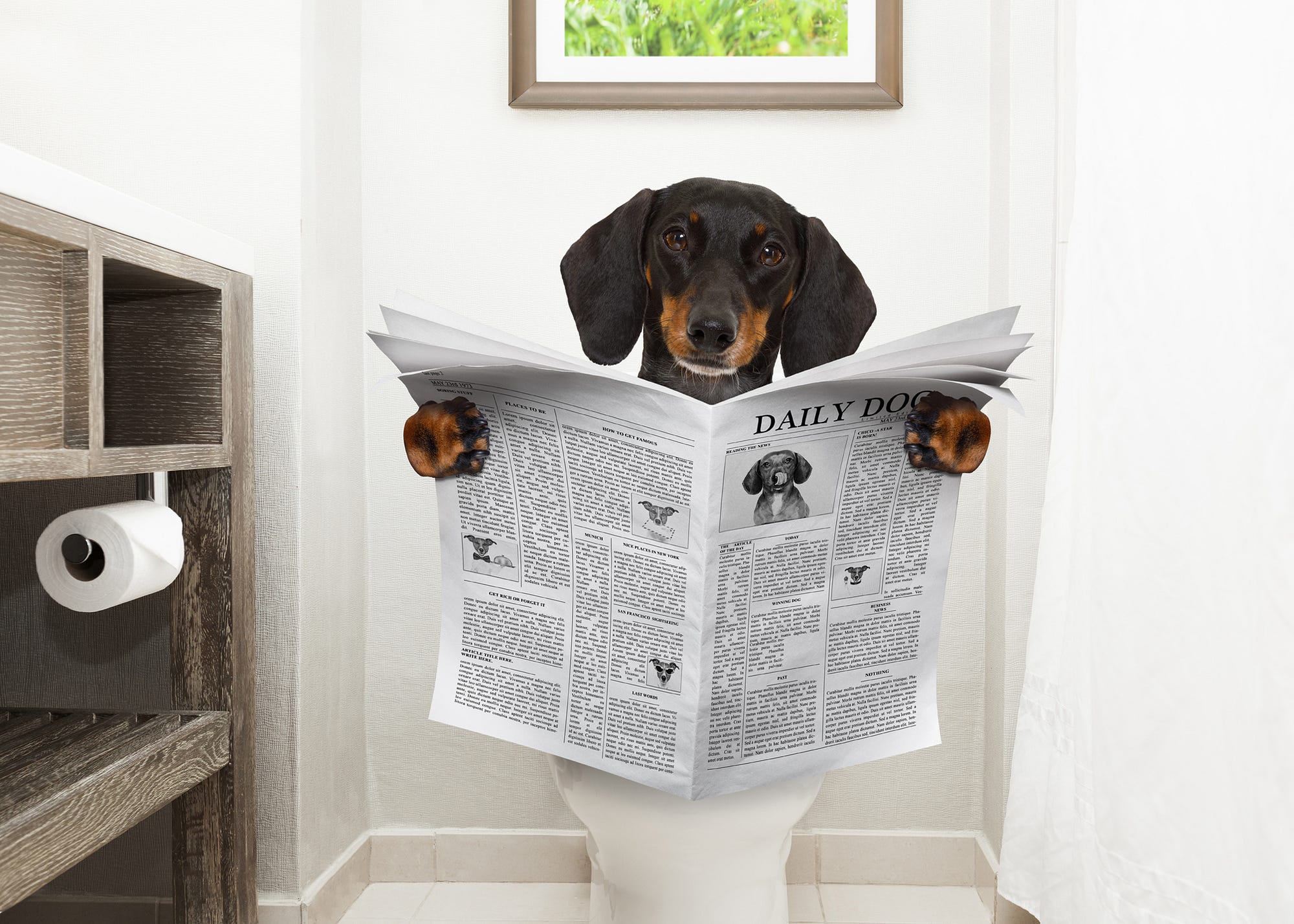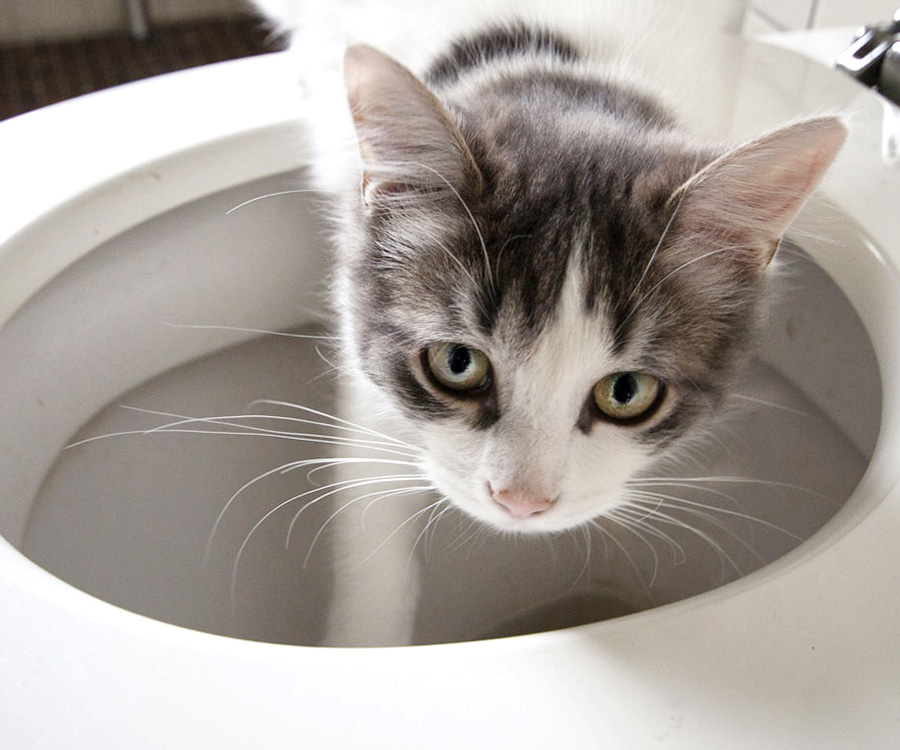When You Need to Never Flush Animal Waste Down the Toilet
When You Need to Never Flush Animal Waste Down the Toilet
Blog Article
The content listed below in relation to Can You Flush Dog and Cat Poo Down the Toilet? is absolutely motivating. You should take a look.

When it comes to disposing of waste, especially animal waste, lots of people commonly turn to the practical option of flushing it down the toilet. Nevertheless, this apparently very easy remedy can have serious repercussions for the environment and public health. In this short article, we'll discover why flushing pet waste down the bathroom is a bad idea and give alternative methods for proper disposal.
Introduction
Correct garbage disposal is crucial for keeping ecological sustainability and public health. While it may seem harmless to purge animal waste down the commode, it can cause various issues, both for the setting and human wellness.
Risks of flushing pet waste
Environmental influence
Purging animal waste presents damaging bacteria and virus into rivers, which can negatively impact marine environments. These pathogens can infect water resources and damage marine life, disrupting fragile communities.
Public health worries
Pet waste consists of hazardous bacteria such as E. coli and Salmonella, which can posture severe wellness threats to human beings. Flushing pet waste down the commode can pollute water products, resulting in the spread of illness and infections.
Alternatives to flushing
Rather than purging pet waste down the toilet, there are a number of alternate disposal techniques that are a lot more environmentally friendly and hygienic.
Composting
Composting animal waste is an environmentally friendly method to throw away it. By composting, raw material is broken down right into nutrient-rich soil, which can be used to fertilize gardens and plants.
Landfill disposal
Disposing of pet waste in a garbage dump is an additional choice. While not as environmentally friendly as composting, it is a safer alternative to flushing, as it stops the contamination of water resources.
Pet waste disposal systems
There are specialized animal garbage disposal systems readily available that securely and hygienically dispose of pet waste. These systems often use enzymes to break down waste and remove smells.
Actions to proper pet garbage disposal
To make sure appropriate disposal of animal waste, follow these actions:
Scooping and landing waste
On a regular basis scoop and bag animal waste making use of biodegradable bags. This protects against waste from contaminating the setting.
Using marked waste containers
Dispose of bagged animal waste in designated waste containers, such as garden compost bins or garbage dump bins. Prevent flushing it down the toilet at all expenses.
Cleaning up can and animal areas frequently
Routinely clean litter boxes and pet areas to stop the buildup of waste and germs. Use pet-safe cleaning items to maintain health.
Advantages of proper disposal methods
Taking on more info correct disposal techniques for pet waste offers a number of advantages:
Decreased environmental pollution
Appropriate disposal approaches minimize the risk of environmental pollution, protecting rivers and ecological communities from contamination
Decreased threat of water contamination.
By staying clear of flushing pet waste down the commode, the danger of water contamination is substantially reduced, safeguarding public health.
Boosted cleanliness and hygiene
Proper disposal approaches promote far better hygiene and hygiene, developing a safer atmosphere for both humans and animals.
Verdict
In conclusion, flushing pet waste down the toilet is damaging to the environment and public health. By embracing different disposal approaches and adhering to correct waste administration methods, we can decrease the negative impact of pet waste and contribute to a cleaner, much healthier earth.
What To Do With Dog Poo – The Do's And Don'ts Of Disposing Of Faeces
Dog poo bins
Some councils provide dedicated dog waste bins in popular dog-walking areas that can take dog poo that has been bagged but you can legally dispose of dog waste in any public litter bin, as long as it is securely bagged. This also applies to your wheelie bin at home.
Do not flush
Water companies do not recommend flushing dog faeces down the toilet because certain parasites can survive the water processing treatment and are potentially harmful to humans. You should also never consider flushing dog poo that has been bagged down the toilet as the bags will not break down and instead create severe blockages in the sewage system.
In the woods
The Forestry Commission promotes a ‘stick and flick’ method for dealing with waste in the woods. This means finding a stick and using it to flick any poo from off the path so that it is out of the way of other walkers. You could also bury it as long as it is not in an area where there might be livestock.
Livestock
Parasites found in dog poo can be transmitted to livestock if they inadvertently eat infected faeces that has been left on grazing land. This could result in the death of sheep or abortion in cattle so you should always make sure you pick up your dog’s waste in fields where livestock could be present.

Routinely clean litter boxes and pet areas to stop the buildup of waste and germs. Use pet-safe cleaning items to maintain health.
Advantages of proper disposal methods
Taking on more info correct disposal techniques for pet waste offers a number of advantages:
Decreased environmental pollution
Appropriate disposal approaches minimize the risk of environmental pollution, protecting rivers and ecological communities from contamination
Decreased threat of water contamination.
By staying clear of flushing pet waste down the commode, the danger of water contamination is substantially reduced, safeguarding public health.
Boosted cleanliness and hygiene
Proper disposal approaches promote far better hygiene and hygiene, developing a safer atmosphere for both humans and animals.
Verdict
In conclusion, flushing pet waste down the toilet is damaging to the environment and public health. By embracing different disposal approaches and adhering to correct waste administration methods, we can decrease the negative impact of pet waste and contribute to a cleaner, much healthier earth.
What To Do With Dog Poo – The Do's And Don'ts Of Disposing Of Faeces
Dog poo bins
Some councils provide dedicated dog waste bins in popular dog-walking areas that can take dog poo that has been bagged but you can legally dispose of dog waste in any public litter bin, as long as it is securely bagged. This also applies to your wheelie bin at home.
Do not flush
Water companies do not recommend flushing dog faeces down the toilet because certain parasites can survive the water processing treatment and are potentially harmful to humans. You should also never consider flushing dog poo that has been bagged down the toilet as the bags will not break down and instead create severe blockages in the sewage system.
In the woods
The Forestry Commission promotes a ‘stick and flick’ method for dealing with waste in the woods. This means finding a stick and using it to flick any poo from off the path so that it is out of the way of other walkers. You could also bury it as long as it is not in an area where there might be livestock.
Livestock
Parasites found in dog poo can be transmitted to livestock if they inadvertently eat infected faeces that has been left on grazing land. This could result in the death of sheep or abortion in cattle so you should always make sure you pick up your dog’s waste in fields where livestock could be present.

I ran across that blog post on 4 Reasons Why Dog Poop Cleanup is Important when doing a lookup on the internet. Do you know another individual who is excited about Should you flush animal waste down the toilet? Be sure promote it. Thanks a lot for your time. Revisit us soon.
Book Report this page